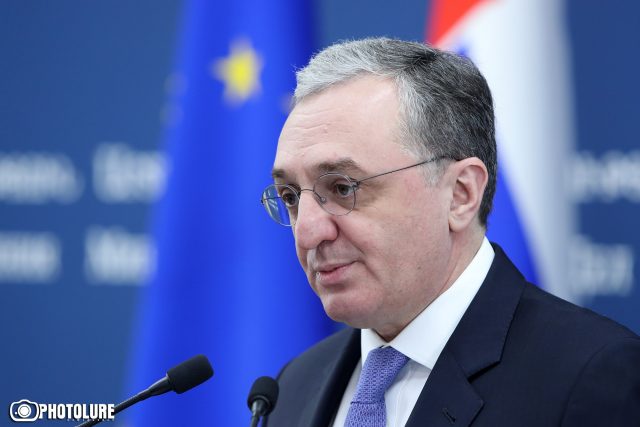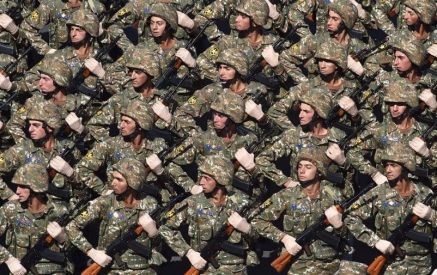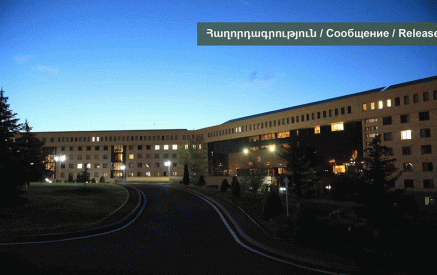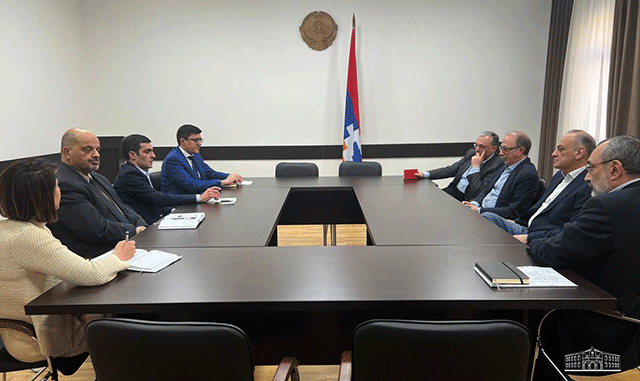“This is not the first time that this has been mentioned. This is an important element for our approach and position towards the peaceful resolution of the Artsakh conflict. Our approach should never be doubted and no one should ever assume that security and status are separated. We have never given anyone reason to think that way, nor do we intend to,” Minister of Foreign Affairs of Armenia Zohrab Mnatsakanyan said in response to journalists’ questions about whether or not the right to self-determination is a secondary issue in the negotiations process during a press conference with the Minister of Foreign Affairs of Slovakia, Miroslav Lajcak on February 24th.
Zohrab Mnatsakanyan explained, “All those following the process are not necessarily guided by a single circumstance, but rather by its comprehensiveness. What made you think that we can review that essential and important principle? I will read the part that was mentioned during my speech during the meeting of OSCE ministers in Bratislava, and this is one of the most recent examples. All those following the process will understand that the right to self-determination is and always was a priority and it logically cannot be removed from our agenda.”
Zohrab Mnatsakanyan quoted his speech where he mentioned that the right to self-determination of the people of Artsakh is an inseparable right in the peaceful resolution process.
Journalists also asked Zohrab Mnatsakanyan about how an Armenian soldier was wounded on February 24th, which took place after the Security Council session, and if this was Azerbaijan’s response. The minister said, “To be honest, I found out about it when we met and my colleagues informed me. I did not have the opportunity to speak to my other colleagues. But I can say that it is very worrisome since reducing the risk of escalation has been a priority for us throughout the entire negotiations process. A rise in the risk of escalations will not give us the opportunity to have true progress in the negotiations process. We had an important achievement in 2019, which was the decrease in escalation, and we have a good example of that when the line of communication is used. It is difficult for me to say that we have had fewer cases of escalation, however, because even one casualty is too many, but it is important for us to maintain having a low risk in negotiations. It is important to understand what developments took place. There was a wounded soldier on the Armenian side, which is worrisome and unacceptable. We will continue to push that agenda forward. There are specific questions that need to be addressed that will bring forth the decrease in risks and that are based on our former and present approaches.”
Read also
Tatev Harutyunyan























































